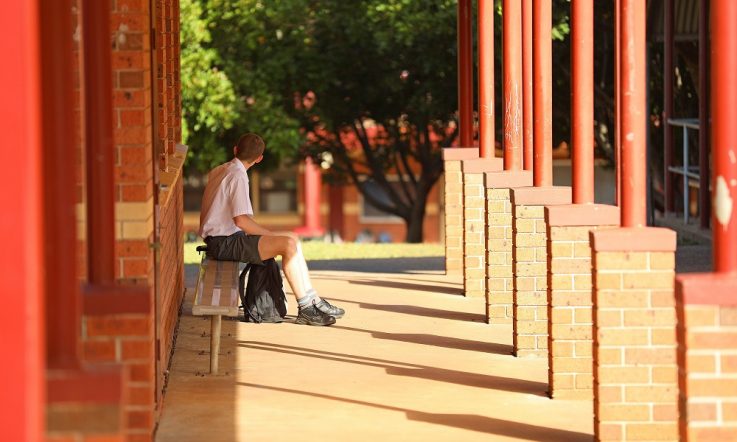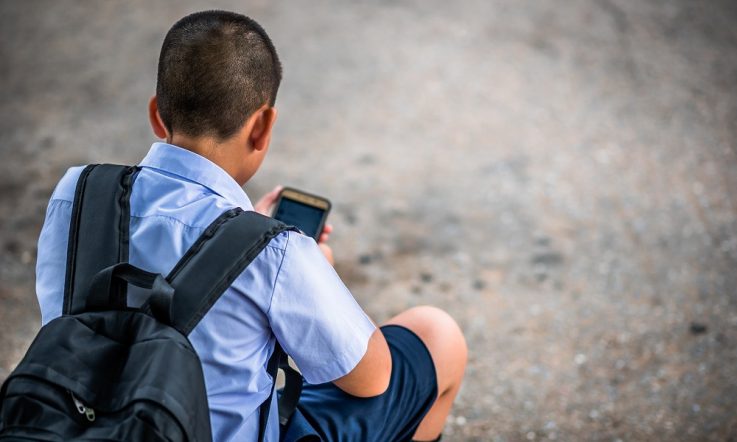Stress, school or study problems and mental health are the top three personal concerns for Australian teenagers according to new survey data.
Mission Australia's Youth Survey 2018 asked more than 28 000 15- to 19-year-olds across the country for their views on a range of issues, including education and employment, personal wellbeing, their concerns, who they turned to for help and their feelings about the future.
The organisation says each of the top four personal concerns in 2018 have strong links to mental health. Detailing the results, its annual youth survey report says:
- Coping with stress was the top issue of concern, with over four in 10 (43.1 per cent) respondents indicating that they were either extremely concerned (18.7 per cent) or very concerned (24.4 per cent) about this issue.
- School or study problems was a major concern for one third (33.8 per cent) of young people (extremely concerned: 13.0 per cent; very concerned: 20.8 per cent).
- Mental health was also an important issue of concern for three in 10 (30.9 per cent) respondents (extremely concerned: 15.3 per cent; very concerned: 15.6 per cent).
- Around three in 10 (30.4 per cent) respondents were either extremely concerned (13.6 per cent) or very concerned (16.8 per cent) about body image.
Physical health (25.7 per cent), personal safety (18.6 per cent), family conflict (17.6 per cent); financial security (16.7 per cent), suicide (16 per cent) and bullying/emotional abuse (15.8 per cent) completed the top 10.
There were some clear gender differences. More than half of female respondents (56.0 per cent) were ‘extremely concerned' or ‘very concerned' about coping with stress, compared with 26.2 per cent of males. School or study problems was cited as a major concern by 41.8 per cent of females compared with 23.3 per cent of males, and 41.5 per cent of females were concerned about body image compared with 15.4 per cent of males.
When asked where they'd seek out help for issues in their life, friends (84.5 per cent), parents or guardians (76.1 per cent) and relatives or family friends (60.1 per cent) were the top three sources while more than one third (37.7 per cent) said they would turn to a teacher for support and 36 per cent would seek help from a school counsellor.
‘Young people need to feel confident in seeking help and know whom they can speak to and trust. At the same time, it is important that those providing support for young people—family, friends, teachers or professionals—are equipped with the tools and resources to address young people's concerns effectively,' the report says.
For the first time, this year's survey included a section on using the internet for help. Participants were asked to indicate which sources of support they had accessed from a list: 31 per cent said they had used the internet to source information about specific issues, 19 per cent had accessed an online quiz or assessment tool, 17.4 per cent had used the internet to find personal stories or testimonies and 16.5 per cent had used it to chat one-on-one with someone who has had a similar experience.
When asked about their own happiness and feelings about the future, almost two thirds (62.3 per cent) said they felt happy or very happy with their lives overall (the proportions for females and males were 59.1 per cent and 67.8 per cent, respectively), and a similar proportion of respondents (62.2 per cent) reported feeling either positive or very positive about their future.
In addition to personal concerns, survey participants were asked to list the three issues they considered to be the most important in the country today. Mission Australia says 43 per cent of young people identified mental health as the top issue – a 10 per cent increase from the 2017 survey and more than double the proportion in 2016 (20.6 per cent).
For help or information call Lifeline on 13 11 14, Kids Helpline on 1800 55 1800 or visit beyondblue.org.au.
References
Carlisle, E., Fildes, J., Hall, S., Hicking, V., Perrens, B., and Plummer, J. (2018). Youth Survey Report 2018. Mission Australia.
Think about your school wellbeing policies, programs and support networks. What role do students play in developing these? Do you ask students about the issues that are important to them and what they would like help with? How often is the information updated?



